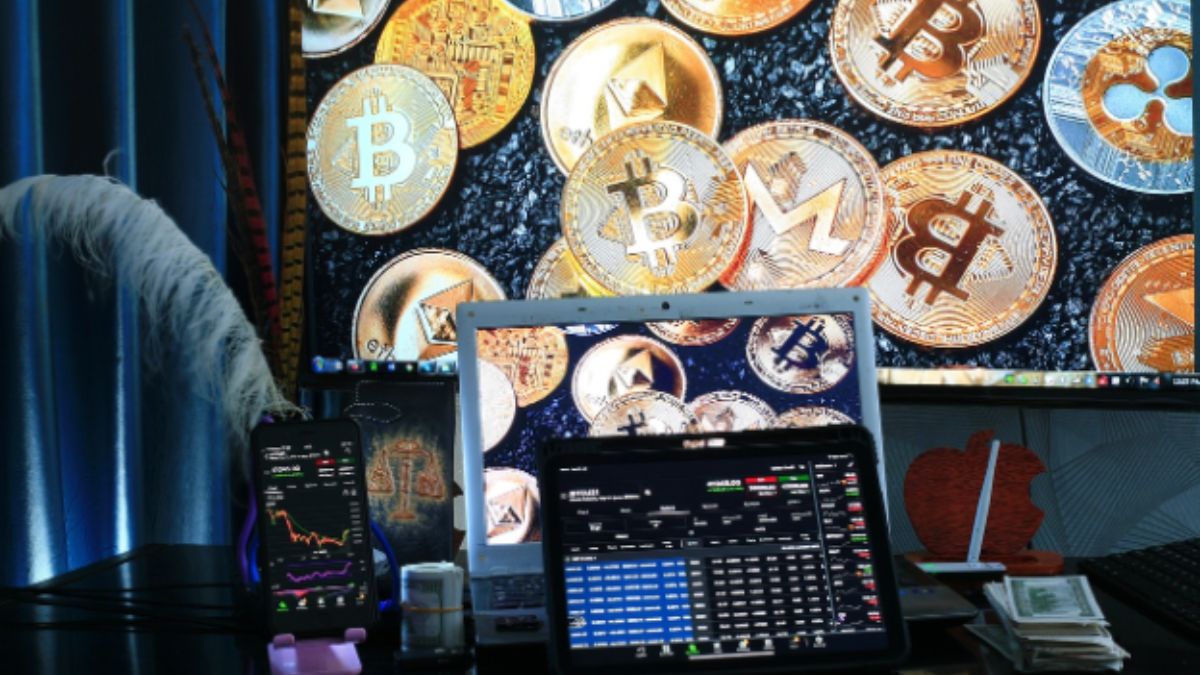CRYPTO
Owning a Crypto Debit Card: 6 Pros and Cons

The cryptocurrency market has seen a meteoric rise, attracting more people to explore the topic further. One of the most significant developments in the crypto ecosystem is the birth of crypto debit cards. These cards bridge the gap between virtual currencies and traditional financial systems, offering several conveniences. However, like any financial tool, even the best crypto debit card options have advantages and disadvantages. In this article, we will explore both the pros and cons of owning a crypto debit card.
Pros of Owning a Crypto Debit Card
1. Easy Conversion from Crypto to Fiat
One of the most significant advantages of a crypto debit card is that it allows users to easily convert their cryptocurrency into fiat currency, such as U.S. dollars, euros, or yen. With a crypto debit card, you don’t need to exchange your crypto manually on a digital exchange and then transfer it to a bank account. Instead, the conversion is immediate and quick. This makes it convenient for users to spend their crypto on everyday purchases at stores, restaurants, and online shops that may not accept direct crypto payments.
2. Wider Acceptance and Accessibility
Most crypto debit cards are powered by established payment networks like Visa or Mastercard. This means they are accepted nearly everywhere these networks operate, allowing cardholders to use their cryptocurrency for purchases in millions of locations worldwide. For those with extensive crypto holdings, this provides greater flexibility and practicality for spending their digital assets without liquidating them through a complicated process.
3. Potential for Rewards and Cashback
Multiple debit card issuers offer rewards. Debit card owners can earn cashback, crypto rewards, or other benefits. Some options provide rewards in the form of Bitcoin or other cryptocurrencies, allowing users to acquire more crypto simply by making regular purchases. This can be very enticing for those who want to maximize their crypto holdings while using their card for everyday expenses.
4. Increased Financial Independence
Owning a crypto debit card can provide financial independence for individuals in regions with less developed banking infrastructure. For people living in countries with unstable economies or restricted access to traditional banking services, crypto debit cards offer an alternative way to participate in the global financial system without relying on local banks. Additionally, using a crypto debit card can provide greater privacy and autonomy for those concerned about government control or surveillance of their economic activities.
5. No Need for a Bank Account
Some crypto debit cards do not require the user to have a traditional bank account. This can benefit unbanked individuals or those who prefer to manage their finances without involving conventional financial institutions. This is particularly useful for people in regions with limited access to banking services, as they can manage their funds using only a smartphone and a crypto wallet.
6. Currency Diversity
A crypto debit card can simplify traveling or making purchases in foreign currencies. Instead of dealing with traditional foreign exchange rates and bank fees, crypto debit cards often convert digital assets into local currency without additional charges. This is especially useful for people who travel frequently, as it reduces the hassle and costs associated with currency exchange.
Cons of Owning a Crypto Debit Card
1. Volatility of Cryptocurrencies
One major downside of using a crypto debit card is the inherent volatility of cryptocurrencies. Cryptos like Bitcoin and Ethereum can experience substantial price fluctuations within a short period, meaning that the value of your holdings could decrease or increase unpredictably. If the price of your cryptocurrency drops suddenly, you might spend more of your crypto to cover the same expense, reducing the overall value of your assets.
2. Transaction Fees and Conversion Costs
Although crypto debit cards make spending cryptocurrencies easier, they often come with fees. These fees may include card issuance, monthly maintenance, transaction, and conversion fees when swapping crypto for fiat currency. Some cards also impose withdrawal limits and fees for ATM withdrawals. These costs can pile up, reducing your gain from using the card. Additionally, exchange rates for crypto-to-fiat conversions may only sometimes be favorable, potentially leading to higher conversion costs.
3. Limited Availability in Some Regions
While crypto debit cards are growing in popularity, their availability is expected. Some regions have regulatory restrictions that prevent or limit the use of crypto debit cards. In certain countries, local merchants may not support crypto debit cards, or the card providers may not be licensed to operate. Users in such regions may need help using their crypto debit cards effectively, primarily for in-person purchases.
4. Regulatory Uncertainty
Virtual assets operate on a fine line in certain parts of the world. While some countries accepted crypt, some have either regulated or banned them. This creates uncertainty for users of crypto debit cards. Regulatory changes could impact the legality or functionality of these cards in certain regions, potentially making them unusable. With new regulations, cardholders may temporarily face restrictions on their card usage or lose access to their funds if the provider needs to comply with new legal requirements.
5. Security Concerns
While cryptocurrencies offer robust security features like encryption and blockchain technology, using crypto debit cards introduces some risks. If a user’s card is lost, stolen, or hacked, they could lose their crypto funds. Although many card providers protect against fraud, recovering lost funds in cryptocurrency can be more complex than recovering lost funds in traditional bank accounts. Additionally, online exchanges and wallets linked to the card can also be vulnerable to cyberattacks, which could lead to the loss of funds.
6. Dependence on Third-Party Providers
Crypto debit cards require users to trust third-party card issuers and payment processors. Unlike holding cryptocurrency in a private wallet, using a crypto debit card means relying on a company to manage the conversion and transaction processes. Users must consider the card provider’s reputation and reliability before using their services.
Conclusion
Owning a crypto debit card can offer convenience, flexibility, and rewards for those who hold cryptocurrencies and want to spend them easily in the traditional financial system. However, these benefits come with possible roadblocks. For individuals comfortable navigating these challenges, a crypto debit card can be a powerful tool for managing and utilizing digital assets. However, it’s essential to carefully evaluate the specific card provider, terms, and associated risks before deciding whether a crypto debit card is the right financial tool for your needs.
CRYPTO
Understanding the Costs: Is a Crypto Miner Rig Worth It?

If you’re exploring cryptocurrency mining, you’ve probably come across the term “miner rig.” These specialized machines are essential for extracting digital currencies like Bitcoin and Ethereum.
However, understanding if a miner rig is worth the investment requires careful analysis of the costs involved. The key lies in balancing expenses with potential returns.
Let’s break down the factors that determine if a cryptocurrency mining setup makes sense for you.
Initial Cost of Crypto Miner Hardware
The first cost to consider is the price of the miner rig itself. Crypto miner hardware can range from a few hundred to several thousand dollars. If it costs less than others, ensure the rig still meets your performance needs.
The higher-end models often offer better performance but come with a hefty price tag. Remember to compare specs like hash rates and energy efficiency to get the best deal.
Energy Consumption of the Miner Rig
Energy consumption is a major factor in mining profitability. Efficient mining equipment uses less power while delivering good performance. Older rigs might be cheaper to buy but can rack up high electricity bills.
Always check the power usage of your cryptocurrency mining setup before purchasing. Reducing energy costs can make digital currency extraction more profitable in the long run.
Maintenance and Repairs
Keeping your miner rig running smoothly requires regular maintenance. Dust and heat can reduce the lifespan of crypto miner hardware, leading to expensive repairs.
Investing in cooling systems and proper ventilation can lower these risks. Routine checks ensure your equipment operates at its best. Maintenance costs are an important part of your overall mining budget.
Mining Pool Fees and Software Costs
Joining a mining pool increases your chances of earning rewards but comes with fees. Some pools charge a percentage of your earnings, which can add up over time.
Additionally, specialized software for managing your cryptocurrency mining setup may not always be free. Research mining profitability tips to choose affordable and reliable software and pools.
Small fees can significantly impact your overall profits.
Fluctuating Value of Digital Currencies
The value of cryptocurrencies can change quickly. This volatility affects how much you earn from mining. A miner rig might seem profitable when prices are high but could lose value if prices drop.
Keeping track of market trends is essential for successful digital currency extraction. Diversifying your mining portfolio can also help minimize risks.
Resale Value of the Miner Rig
Eventually, you might want to upgrade or stop mining altogether. The resale value of crypto miner hardware can offset some of your initial investment. Newer rigs hold their value better than outdated models.
Researching the market for second-hand miner rigs can give you an idea of potential resale prices. Selling a rig when it’s still in demand ensures you recover some of your costs.
Discover If a Crypto Miner Rig is Worth It
Determining if a miner rig is worth the investment requires analyzing all the costs involved. From hardware and energy bills to maintenance and market fluctuations, every expense affects your bottom line.
By focusing on efficient mining equipment and following mining profitability tips, you can improve your chances of success. Take the time to understand these factors before committing to a cryptocurrency mining setup.
With the right approach, digital currency extraction can be both rewarding and sustainable.
Should you wish to read more, visit our blog page. We’ve got more for you!
CRYPTO
How to Set Up Your Best Bitcoin Miner for Maximum Profit

Bitcoin mining can be a rewarding venture, but to make the most of it, you need to set up your miner correctly.The “best Bitcoin miner” for your needs depends on various factors such as electricity costs, hardware quality, and mining software. In this article, we’ll guide you through the process of optimizing your Bitcoin miner for maximum profit.A guide like this helps both beginners and experienced miners set up their equipment to perform at its best.
1: Choose the Right Bitcoin Miner
The most important factor when setting up for Bitcoin mining is selecting the right hardware. You want a miner that is efficient and powerful enough to generate profit. ASIC (Application-Specific Integrated Circuit) miners are currently the best Bitcoin miners for this purpose.
Consider the power consumption as well – a guide like this helps you understand that lower energy usage means higher profit margins.
2: Find a Good Location
The location of your Bitcoin miner can have a significant impact on its performance and profitability. It’s crucial to place your miner in a cool, dry environment where it won’t overheat.
Excessive heat can reduce the miner’s efficiency, so consider setting it up in a space with good ventilation, such as a basement or a dedicated mining room.
3: Connect Your Miner to Power
Bitcoin miners require a significant amount of electricity to operate. Be sure to choose a power supply unit (PSU) that matches the specifications of your miner. A reliable PSU will ensure that your miner runs smoothly and safely. It’s best to use an efficient PSU to reduce your electricity bills and increase overall profitability.
Also, check your electrical setup to ensure your outlet can handle the load. A dedicated circuit is recommended to avoid overloads and potential damage.
4: Set Up Mining Software
Once your hardware is in place, it’s time to install the best crypto-mining software. The software you choose will connect your miner to the Bitcoin network. There are several mining software options available, including CGMiner, BFGMiner, and NiceHash. Choose the software that best fits your miner’s capabilities and your personal preferences.
5: Join a Mining Pool
A mining pool is a group of miners who combine their processing power to solve blocks more efficiently. By working together, they increase their chances of solving a block and earning rewards.
The rewards are then shared among pool members based on their contributions to the pool’s total processing power. Mining pools also often provide Bitcoin mining codes and tools that make it easier to configure your setup and start earning quickly.
6: Monitor Your Miner’s Performance
After your miner is up and running, it’s important to continuously monitor its performance. This includes checking its hash rate, temperature, and power consumption. Tools like miner monitoring software or dashboards from mining pool websites can help you track your miner’s efficiency.
If you notice any dips in performance or rising temperatures, it may be time for maintenance. Regularly cleaning your miner and checking for any hardware issues can help prolong its lifespan and keep it running at optimal performance.
Maximize Your Profit with the Best Bitcoin Miner
Setting up the best Bitcoin miner requires careful planning and proper hardware, and software configurations. By following the steps outlined in this article, you can ensure that your miner operates at its peak performance. With the right setup, you’ll be well on your way to mining Bitcoin efficiently and effectively.
Ready for round two? Our blog’s got more where this came from. Hit that link and dig in!
CRYPTO
How Bitcoin to Naira Apps are Changing Financial Transactions in Nigeria

In recent years, Nigeria has seen rapid growth in the adoption of cryptocurrencies, with Bitcoin leading the charge as the most popular digital currency. The surge in Bitcoin transactions, however, has not only fueled the market but has also led to the rise of Bitcoin to Naira conversion apps that make crypto transactions smoother, faster, and more accessible. These apps are reshaping how people manage their finances in Nigeria, creating new opportunities and bringing alternative ways to store, send, and receive money. This article explores how Bitcoin to Naira apps are changing financial transactions in Nigeria, the benefits they offer, and the impact they’re having on the economy.
Why Nigerians Are Embracing Bitcoin
Nigeria has consistently ranked among the top countries worldwide in Bitcoin adoption. This interest in Bitcoin and other cryptocurrencies is driven by several factors:
- Economic Instability: Nigeria has faced inflation and currency devaluation, which makes Naira a less stable store of value. Bitcoin, despite its volatility, has been seen as a hedge against currency devaluation.
- Limited Access to International Transactions: Many Nigerians have limited access to foreign exchange for international transactions due to currency controls. Bitcoin offers an alternative that allows for cross-border payments.
- High Remittance Costs: For Nigerians abroad sending money back home, Bitcoin provides a faster and cheaper alternative to traditional remittance services, which often charge high fees and take several days to process.
- Interest in Digital Innovation: The youth-driven digital economy in Nigeria has led to high interest in tech advancements, including cryptocurrencies, which appeal to younger Nigerians familiar with mobile and online platforms.
Given these factors, the need for easy conversion between Bitcoin and Naira has grown, leading to a rise in Bitcoin to Naira app that facilitate these transactions.
What Bitcoin to Naira Apps Offer
Bitcoin to Naira app bridge the gap between the digital currency market and the traditional financial system in Nigeria. They provide a platform for converting Bitcoin to Naira and vice versa, typically at competitive rates and with lower fees than banks or traditional financial services. Here’s how these apps are reshaping financial transactions:
1. Easy Conversion for Everyday Use
One of the primary functions of Bitcoin to Naira apps is their ability to instantly convert Bitcoin into Naira, making it accessible for everyday transactions. Users can buy and sell Bitcoin with Naira, allowing them to either spend their Bitcoin holdings or store their earnings in a more familiar currency.
These apps allow users to hold Naira in a digital wallet on the platform or withdraw it to a local bank account, making it easy to switch between crypto and fiat currency as needed.
2. Lower Fees and Faster Transactions
Compared to traditional remittance services or currency exchanges, Bitcoin to Naira apps typically offer lower fees and faster processing times. Traditional banks may impose high fees for currency conversions or international transfers, and transactions can take days to settle. With Bitcoin to Naira app, transactions are completed within minutes, providing users with a quick, cost-effective way to move money.
3. Access to Cross-Border Payments
Bitcoin to Naira app are also empowering Nigerians to participate in the global economy. They enable users to make cross-border payments without needing foreign exchange accounts or international bank transfers. For instance, freelancers or entrepreneurs can receive Bitcoin from clients abroad and convert it into Naira easily. This accessibility has been a game-changer for Nigerians engaged in international business, freelance work, or cross-border e-commerce.
4. Investment Opportunities
Bitcoin to Naira apps allow Nigerians to diversify their investment portfolio by purchasing and holding Bitcoin. The apps make it convenient for users to buy, sell, and hold Bitcoin, thereby providing access to an alternative asset class that can serve as a hedge against inflation. For many, Bitcoin represents an investment vehicle with the potential for high returns, and the availability of easy conversion means they can cash out into Naira whenever they choose.
5. Enhanced Financial Privacy and Security
For many users, Bitcoin offers a level of financial privacy that traditional banking does not. Bitcoin transactions don’t require users to reveal as much personal information, making it a preferred choice for those concerned with privacy. Bitcoin to Naira apps also integrate advanced security features, such as two-factor authentication, to ensure that users’ funds and information remain safe.
Key Players in Nigeria’s Bitcoin to Naira App Market
Several Bitcoin to Naira apps have risen to prominence in Nigeria, each providing similar core services but with different features to cater to various needs. Some of the most popular Bitcoin to Naira platforms include:
- Luno: Luno is one of the most widely used Bitcoin trading platforms in Nigeria, offering users the ability to buy, sell, and store Bitcoin, as well as other cryptocurrencies. It provides a user-friendly interface and easy bank withdrawal options.
- Binance P2P: Binance’s peer-to-peer (P2P) platform allows users to buy and sell Bitcoin directly with other users. The P2P feature offers more control over exchange rates and lets users transact without a middleman, making it a popular choice in Nigeria.
- Paxful: Paxful is a well-known P2P marketplace where users can buy and sell Bitcoin with a variety of payment methods. It’s particularly popular among Nigerians for its flexibility and extensive security measures.
- Bundle: Bundle is a Nigerian crypto app that enables users to buy, sell, and store Bitcoin with ease. It’s designed specifically with African users in mind and offers low fees and a streamlined transaction process.
- GetKoyn: GetKoyn is an emerging platform that allows for seamless Bitcoin to Naira transactions and is known for providing real-time rate information, making it a reliable option for getting the best value.
The Impact of Bitcoin to Naira Apps on Nigeria’s Financial Landscape
Bitcoin to Naira apps are having a transformative impact on Nigeria’s financial landscape, affecting everything from remittances to individual financial empowerment:
1. Increased Financial Inclusion
In a country where a significant portion of the population remains unbanked, Bitcoin to Naira apps offer an alternative financial system. These apps make financial services accessible to people who may not have traditional bank accounts, allowing them to store, transfer, and receive money digitally.
2. Empowering Small Businesses and Freelancers
With Bitcoin to Naira apps, Nigerian freelancers and small business owners can receive payments from clients worldwide, bypassing the challenges associated with currency exchange restrictions and international bank transfers. This opens new opportunities for Nigerians to participate in the global economy, boosting local entrepreneurship.
3. Supporting a Growing Tech and Crypto Economy
The popularity of Bitcoin in Nigeria has given rise to a thriving tech ecosystem centered around crypto. The development of Bitcoin to Naira apps has spurred innovation, job creation, and investment in the tech sector. As the demand for crypto grows, more entrepreneurs and developers are entering the market to create solutions that meet local needs.
4. Encouraging a New Form of Savings and Investment
Bitcoin is increasingly seen as a store of value and a hedge against inflation. By using Bitcoin to Naira apps, Nigerians are able to save and invest in Bitcoin, offering them an alternative to traditional savings methods. This change in financial behavior has encouraged a savings culture among young Nigerians who prefer the flexibility and potential returns that Bitcoin offers.
Challenges and Future Prospects
Despite the positive impact, Bitcoin to Naira apps face regulatory challenges. In 2021, the Central Bank of Nigeria (CBN) prohibited financial institutions from facilitating cryptocurrency transactions. This led many Nigerians to adopt P2P methods for Bitcoin transactions and drove more people toward crypto platforms and wallets.
As the demand for crypto continues to grow, so does the possibility of evolving regulations that could support or restrict the market. If regulatory frameworks are developed to support the crypto economy, Bitcoin to Naira apps could flourish even further, making crypto a staple in the everyday financial lives of Nigerians.
Conclusion
Bitcoin to Naira apps have introduced a convenient and innovative way for Nigerians to engage in financial transactions, invest, and participate in the global economy. From offering lower fees and faster transactions to providing investment opportunities and cross-border payment solutions, these apps are reshaping how people manage their money. While challenges remain, particularly with regard to regulatory hurdles, Bitcoin to Naira apps have proven their potential to provide financial empowerment and inclusion for millions in Nigeria.
As adoption continues, these apps will likely play an even bigger role in Nigeria’s financial ecosystem, bridging the gap between the traditional financial system and the digital future.
-

 HEALTH2 years ago
HEALTH2 years agoIntegrating Semaglutide into Your Weight Loss Plan: A Practical Guide
-

 HOME IMPROVEMENT2 years ago
HOME IMPROVEMENT2 years agoHow to Choose the Perfect Neutral Area Rug for Every Room
-

 LAW2 years ago
LAW2 years agoTeenage Drivers and Car Accidents in California: Risks and Parental Liability
-

 FASHION2 years ago
FASHION2 years ago7 Celebrity-Inspired Elegant Summer Dresses For 2024
-

 CONSTRUCTION2 years ago
CONSTRUCTION2 years agoConstruction Site Safety Regulations in New York and Your Rights as a Worker
-

 LAW2 years ago
LAW2 years agoPost-Divorce Considerations in California: Modifications and Long-Term Planning
-

 HOME2 years ago
HOME2 years agoSandra Orlow: The Teen Model Who Captivated the Internet
-

 FINANCE2 years ago
FINANCE2 years agoDigital Asset Management in Florida Estate Planning
